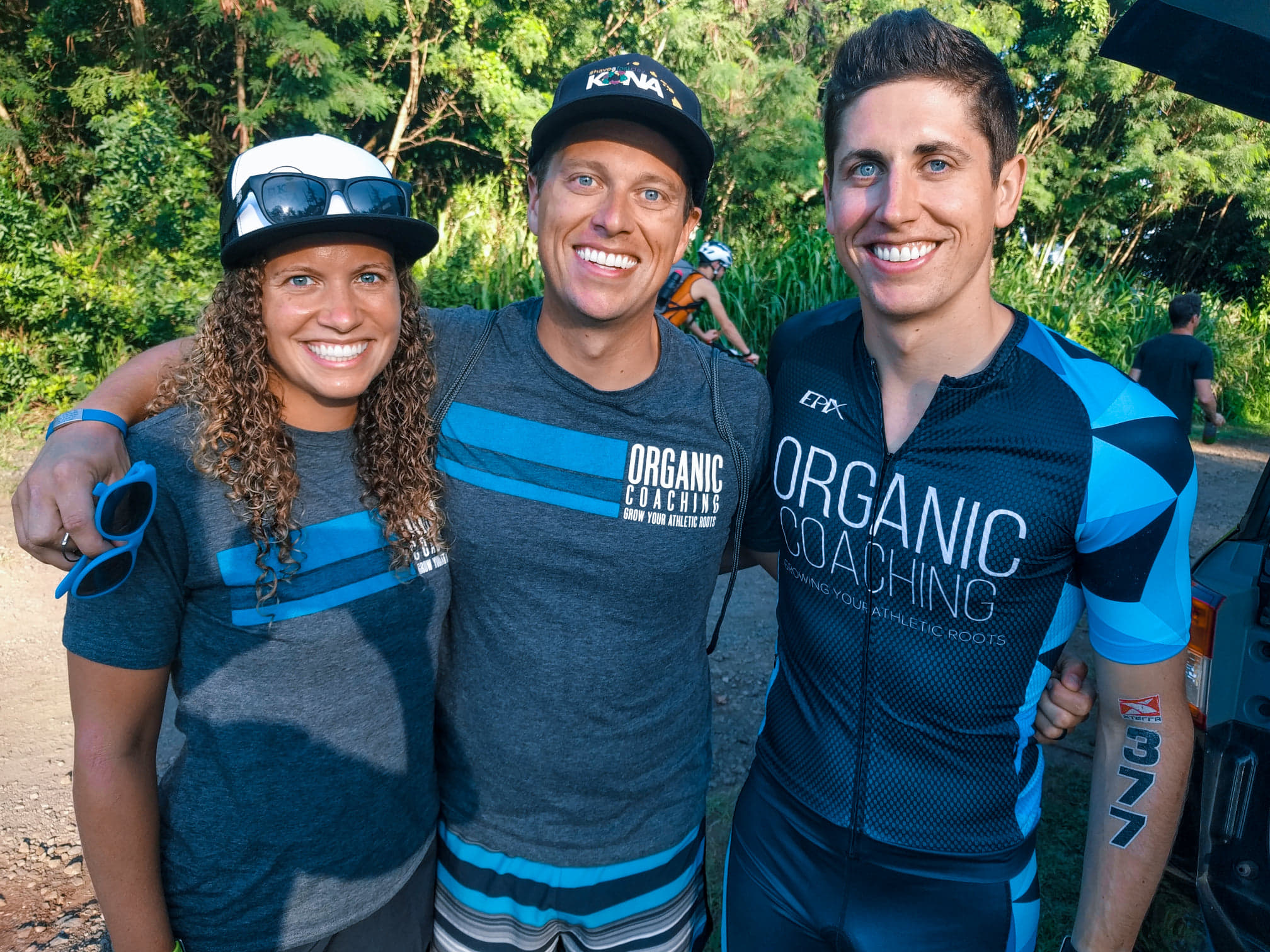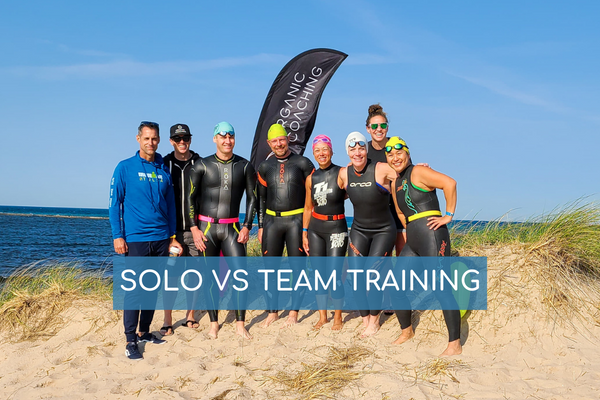

Triathlon is considered an individual sport. Those who have been around the sport of triathlon for a while know that it’s also an amazing community of people worldwide. This community ranges from triathlon-specific teams that could be grouped by a brand, a coach, or a location. Even Master’s swim teams, cycling teams, and run clubs that have triathlete members. So today we are going to dive into whether solo training vs team training is best for you.
While we race as individuals, most of us are part of one or many teams. A common question we hear at Organic Coaching is: should I only train by myself or is it ok to also train with my teammates or other people? How can I balance both? It’s absolutely possible to balance both, but there are some factors to consider.
During individual sessions, it is much easier to be in tune with your own body without distractions from others. You can focus on your form, and monitor your heart rate and breathing when you are in the solitude of your own company. Learning how to be in tune with your body and understand how perceived efforts compare to your paces is a very valuable tool as an athlete. When working out with others, there can be a tendency to ignore your body’s cues. Changing the level of intensity to match your partners, sometimes without even realizing it. You may end up pushing harder than the prescribed workout or lowering intensity to compensate for your workout partner.
Training on your own allows for more flexibility in your schedule. Especially during the work week when it can be hard to find time to meet up with others. If there is a day you are running late or plans change. You aren’t affecting someone else’s schedule or having to miss a practice.
It can be tough to train on your own the majority of the time because all the motivation must be intrinsic. You must rely on your own discipline and motivation to complete and succeed in the workouts. Over time, developing discipline and motivation on your own will only make you mentally stronger. Once you can consistently rely on yourself, training on your own is very rewarding.
Lastly, your athletic history and goals are unique to you which is why every athlete should have a unique training plan. Even if you are training for the same race as a fellow athlete. During the thick of a training cycle, your sessions become specific to your paces and your race. These are the sessions that are best to be done solo.
If you are fortunate enough to find a training partner who is at a similar pace as you. Training together can be a great tool. As a pair, you can challenge each other with less of a risk of pushing the limits when you are at a similar ability level. When you are training on your own during a challenging session. It tends to be easier to slow down than push through.
Also, working out with others is great for accountability and can provide some extrinsic motivation. It can provide some structure in your workout schedule if you have a certain meetup or practice time. For example, if you are planning on swimming in the morning before work. You may be more likely to get out of bed in the morning knowing that you have a friend waiting for you at the pool.
Training is more fun and enjoyable when you can incorporate social time. Before practice or even during warmups, you’re talking about upcoming races, new gear, or your favorite nutrition products. For athletes with very busy schedules, training is the only social time they have. Not only is it a great time to socialize but also learn from others. During group sessions, coaches or experience athletes have time to observe your form and make suggestions to improve. Triathlon training camps are an excellent place to provide accelerated learning from your coach and teammates as well.
Overall, it is advantageous to have a variety of solo vs team training in your schedule where you can train on your own and with others. The best kind of group sessions are ones where you can train with like-minded individuals but are allowed to execute to your own ability. While training alone, you have flexibility in your schedule, can execute specific sessions, and build the mental strength it will take to successfully race.
READ MORE: PLANNING FOR INJURY-FREE TRAINING


Carly and Tyler Guggemos built Organic Coaching in 2014 with a simple philosophy that works. The idea is to take what you have and grow it to get faster, fitter and stronger. And to do it with the time you have – not the time you wish you had.

For athletes who are ready to take their training to the next level while still thriving and succeeding in their professional and family life.
Copyright © 2024 Organic Coaching LLC